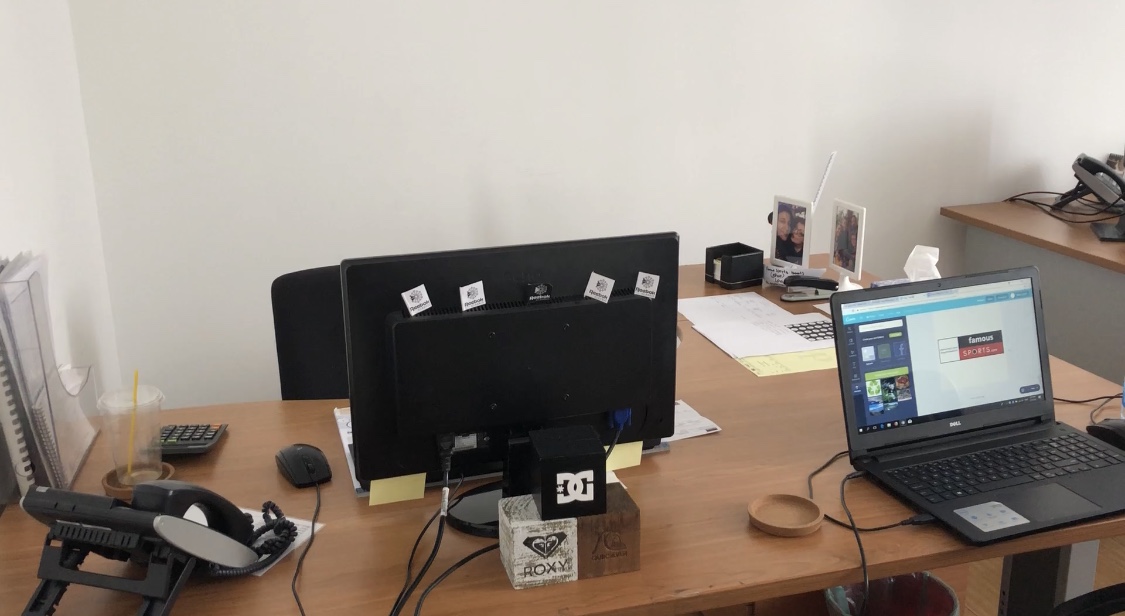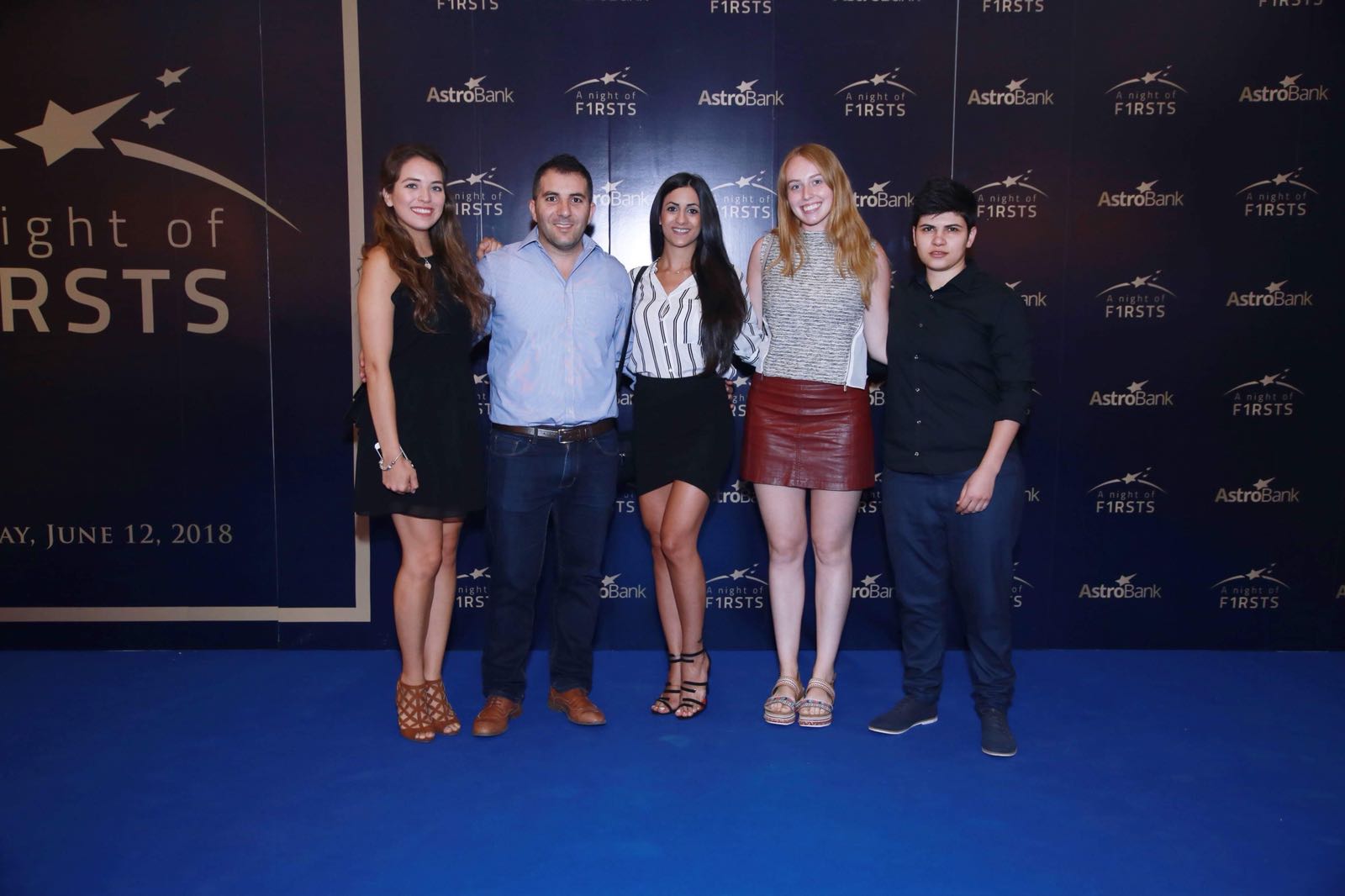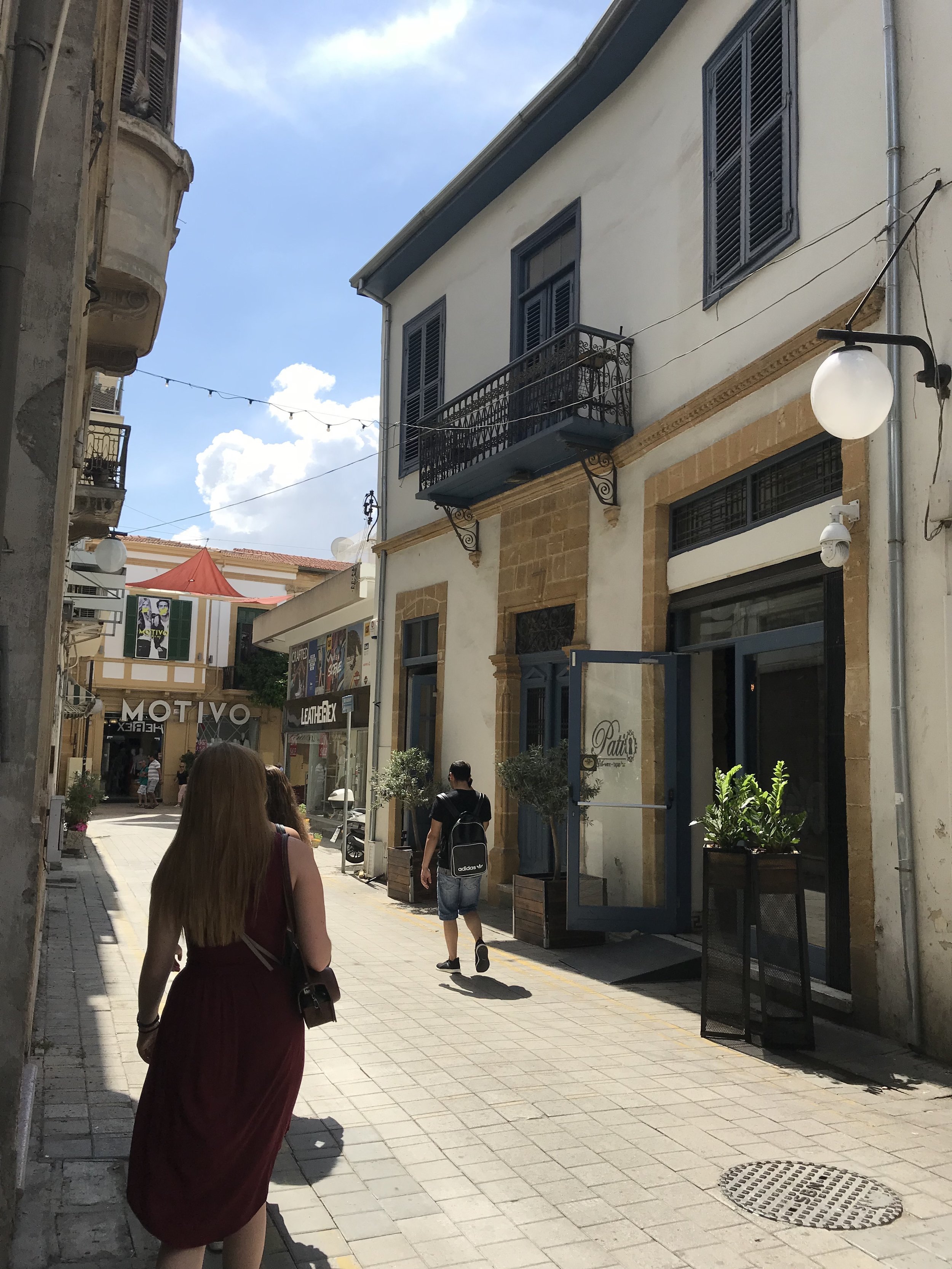Meet the four members of SIBC who will be interning and living in Cyprus for two months. (From left to right) Carolina Lemmen Meyer (Social Way Services), Julia Freund (Famous Sports), Marie Lawson (Famous Sports) and Caroline Murray (Social Way Services). They will be blogging every week from Cyprus about what they have done at their respective internships and will be including pictures.
The interns would like to thank Frank Potenziani and M&T Trust for this amazing opportunity to live in Cyprus and experience the European culture and workforce. As well as thank Sofia Panayides for getting these internship opportunities.
For the first blog post, all of the members have written paragraphs on aspects of Cyprus.
Caroline:
As part of the SIBC, four of us are lucky enough to be traveling to Cyprus this summer and interning for both Socialway eServices and Famous Sports. While in Cyprus we are excited to explore our new surroundings and learn more about the country's rich culture. As many people already know, Cyprus is a small country located in the eastern Mediterranean with a strong affinity for Greek Culture. Cyprus joined the European Union in 2004, but still possesses a split government. The recognized Rebulic of Cyprus controls two-thirds of the country, while the Turkish Republic of Nothern Cyprus (only recognized by Turkey) controls the northern one-third of the country. Due to the split government, there are two official languages within the country, Greek and Turkish. An interesting fact is that the majority of those that speak Greek do not understand a bit of Turkish and vice versa. Depending on how you ask within the country, various responses will be given about the relations between both Turks and Greeks within the country. However, tension between the two sides are relatively stable at the moment and show no sign of imminent fighting. In terms of basic daily life for Cypriots, meals commonly consist of vegetables seasoned in olive oil and other spices in addition to various salads and grilled meat or fish. Major industries for the country include both tourism and agriculture, which are large boosters of the economy. Overall, Cyprus has a rich and unique history that we cannot wait to explore more once we get there.
Marie:
Cyprus gained independence from a variety of foreign rulers in 1960 when it became a Republic. The Constitution drafted with the formation of the Republic designated Greece and Turkey Cypriots or guarantors of independence. Furthermore, there is a Turkish Republic of North Cyprus containing the Turkish minority. The Turkish Cypriots created their own constitution in 1975 and became the Turkish Federated State of Cyprus. The seventh president of the Republic of Cyprus, Nicos Anastasiades, is the leader of the government. The president holds executive power for a term of five years and is elected directly by popular vote. In Cyprus, the voting process is mandatory and is by universal suffrage. In order to exercise his power, the president exercises decision-making through the Council of Ministers and appointed government statesmen. President Anastasiades is a conservative whos directives are focused on the issue of division within the island between the Greek-speaking south and mostly Turkish-speaking north. For 2017, the government agenda has been “strengthening the economy, modernizing the state, and reaching a sustainable solution to unify Cyprus” according to President Anastasiades. In addition, the Republic of Cyprus gained membership in the European Union in May 2004. However, there are restrictions on which matters Cyprus has a say in since they are not developed in all necessary areas of expertise. Furthermore, the judicial system is influenced by English common law with the Supreme Court as the final court of appeal. Other forms of the judicial system include district courts, military courts, and assize courts.
Carolina:
I am very excited to spend this summer working for SocialWay eServices, Cyprus´s leading online marketing company. I am looking forward learning about the economy of Cyprus and their form of government. Cyprus has been a member of the EU since 2004 and has adopted the euro as its national currency. The history of Cyprus economy is fascinating, in 2011 Cyprus was listed as one of the 31 advanced economies in the world by the IMF. Part of the country´s economic success was its ability to steadily recover from the financial crisis in 2013, today it is classified by the World Bank as a high-income country. Unemployment has been declining and GDP has been growing since 2015. Most of its economy is built upon services such as tourism, finance, shipping and real estate, which accounts for more than four fifths of GDP and most of employment. Trade is an essential source of economic prosperity for the island as well, the government does particularly well in trade freedom, it does not impose policies interfering with foreign investment. The island´s geographical location is very strategic for conducting international business, it is considered a gateway between Europe, Asia, the Middle East and Africa. Cyprus economy is ranked as the 48th freest in the 2018 Index. Cyprus´ speedy return to international markets as well as confidence from foreign investors has been key for Cyprus economic growth. As I learn more about the island´s economic success and the way business is conducted domestically and internationally I would like to express my gratitude to our benefactor Frank Potenziani and M&T Trust for this incredible opportunity.
Julia:
I have researched about places and things that can be done around Cyprus. In Nicosia (where we are staying), there is the Cyprus Museum that has an archaeological collection that is the best in the world. Another museum is the Centre of Visual Arts & Research (CVAR) is also a café and full-service diner that includes artwork from the 18th century and on. In the summer there are projections of old photos and film at the CVAR. The A.G Leventis Gallery is three floors that include Cypriot, Greek and western European paintings. This gallery was created to house the art collection of Anastasios G. Leventis. In Limassol, the archaeological remains of Ancient Kourion is a beautiful site to see as it overlooks the sea. There is also the Painted Troödos churches in Limassol that includes amazing images that were painted on the church's walls. Scuba diving in Larnaca is also a suggested activity, there are shallower shipwrecks, reefs, and caves. The St. Hilarion Castle has an amazing view at the top where visitors can climb to and is home to many legends. There is a national park called Cape Greco that has trails as well as a coastal scenery. The town of Kyrenia in Northern Cyprus has cafes that overlook the harbor and buildings that remind visitors of the old Ottoman empire. Obviously, there are many beaches in Cyprus such as Nissi Beach, Makronissos Beach, Konnos Bay, and Latchi. There are also very good restaurants like Vivaldi in the Four Seasons Hotel and Hokkaido. However, most of the time we will be cooking, but once in a while it is good to know that there are good restaurants to go eat at. There are so many more places and sites to write about around Cyprus, but it would end up being the entire blog post. I am very excited to explore what Cyprus has to offer as it is an amazing place and I have never been there. I am very grateful for this opportunity.
















































